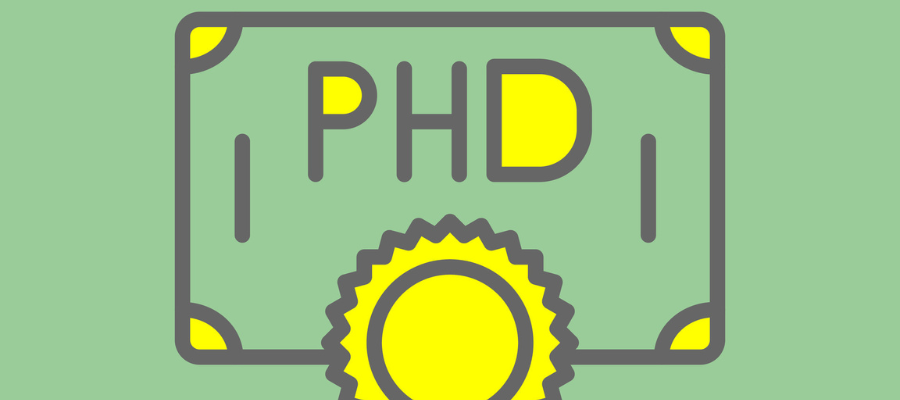Finding the Right PhD Program for You


Picking up a PhD is no small step. It’s not simply another degree; it’s a several-year undertaking that will challenge your mind, your self-discipline, and your emotional stamina. At the core of this process is one key decision: picking the appropriate PhD program. With so many out there in the world, each with varying structures, cultures, and expectations, how do you select the one that suits you best?
In this blog, I’ll share a grounded, human perspective on how to evaluate and select the PhD program that aligns best with your goals and personality.
1. Understand What Drives You
Before you begin scouring college websites or emailing professors, take some time to think about what really gets you going. What academic questions drive you up at night? Which issues continue to come back around in your head, even when you’re not in class?
A PhD is not merely getting a project done; it’s learning to be a researcher. If you’re not actually interested in the topic or field, no ranking, scholarship, or title will be strong enough to see you through the bad times. Self-knowledge is your best place to begin.
Be truthful with yourself:
- Are you curiosity- or credential-motivated?
- Do you like doing long, intense work or short, efficient pieces?
- Are you driven by teaching, discovery, or application?
These questions not only shape what you ought to study, but also how and where you ought to study it.
2. Choose Your Supervisor Like a Teammate, Not a Boss
Perhaps the most underappreciated part of a PhD is the role of your supervisor. Individuals tend to focus on university reputation or departmental standing. However, in practice, your supervisor will define your PhD experience—whether positively or negatively.
A great supervisor is more than a knowledge expert. They are a mentor, a guide, sometimes a cheerleader, and occasionally a critic. You’ll depend on them not only for feedback, but for moral support, connections, and even career advice.
Before choosing a program, take the time to:
- Read your potential supervisor’s recent work.
- Look at how frequently they publish and collaborate.
- Reach out and have an honest conversation with them.
- Discuss with their current or former students, if possible.
You’re seeking someone with a work style that’s compatible with yours. If you enjoy frequent meetings and structure, don’t hire someone hands-off. If you work independently and appreciate being alone, avoid micromanagers. It’s a matter of fit, not charm.
3. Assess the Program's Structure and Expectations
Not all PhDs are the same. Some require you to start off with research. Others will need a year or two of classes. Some provide leeway in research topic, while others put you straight onto preconceived projects.
You should inquire:
- Do you have to teach? How much?
- Are there required exams or milestones?
- What kind of support is there if your research gets stalled?
- Are you supposed to publish, and how often?
These nuts-and-bolts specifics can influence your level of stress, timeline, and likelihood of success. A program that looks great on paper can be daunting if it doesn’t accommodate your pace or learning style.
Also, look for whether the program has inbuilt support mechanisms such as mental health counselling, career development seminars, and study writing assistance. These might appear secondary, yet they turn out to be critical over the long term.
4. Don't Overlook the Environment Beyond Academia
It’s simple to become so concerned with academics that you overlook the fact that you’ll be residing somewhere from 3 to 6 years. Your university’s physical and social environment does matter. A whole lot.
Consider these questions:
- Do you have enough money to live in the city?
- Can you afford to live there with your stipend?
- Do you need to learn a new language, and are you comfortable with that?
- Will you be part of a support network, or will you be alone?
If you’re going abroad, know the immigration laws, healthcare systems, and visa regulations for foreign students. Some nations are open and liberal; others are tight-fisted and bureaucratic. These aspects can affect your mental health and feelings of security.
Culture counts too. A college town with a vibrant graduate community can be invigorating, while a desolate campus in the sticks can be isolating. You’ll want to select a location where both your brain and your life can flourish.
5. Speak to the People Living It
The best indicator of how a PhD program actually works is by speaking with those who are already undertaking it. Contact students currently enrolled in the program—most will be willing to give an honest account of their experiences.
Question them:
- How is the relationship with the supervisor?
- Do people generally complete on schedule?
- Do students get encouraged to work together or compete with each other?
- What’s the workload actually like?
- Have they had problems with funding, bureaucracy, or burnout?
Sometimes a school will appear ideal on its website, but the reality behind the scenes in the offices and labs may be another story. The hope is not to discover a perfect program—there isn’t one—but a community that is in line with your ideals and expectations.
It’s also worth looking into where alumni from the program are today. Are they in postdocs, academia, or industry positions you want to end up in? That’s a pretty good sign of whether the program can lead to your future aspirations.
6. Make a Thoughtful, Balanced Decision
Choosing a PhD program is not a moment—it’s a process. And it shouldn’t be based on just one factor. You’re not only selecting a research topic; you’re also choosing a mentor, a workplace, a community, and a country. Your decision should reflect your personality, not someone else’s checklist.
Some helpful final tips:
- Apply to a mix of programs—reach, match, and safety.
- Don’t be afraid to ask hard questions during interviews.
- Be slow. Hurrying this decision will result in regret.
- Follow your instincts. If it doesn’t feel right now, it won’t feel right later either.
It’s better to turn down a program that sounds wonderful on paper but doesn’t feel right to you. A PhD is too lengthy and too intense to spend in the wrong place with the wrong people on the wrong subject.
There is a bit of pressure in academia to always reach for more: best university, most competitive lab, most published advisor. But the best PhD program for you may not necessarily be the most renowned. It’s the one where you are challenged to become your best self, encouraged to pursue your objectives, and stretched in healthy, sustainable manner.
Your PhD journey will be filled with highs and lows, breakthroughs and breakdowns, quiet days and frantic nights. But when you’re in the right program—surrounded by the right people and pursuing the right questions—those challenges will feel meaningful, not just overwhelming.
Take your time. Ask the right questions. And believe that the right program is out there, waiting for the right researcher—you.
Contact Aara Consultancy for help!
We provide 360° Solution for your Education Needs. Contact us






